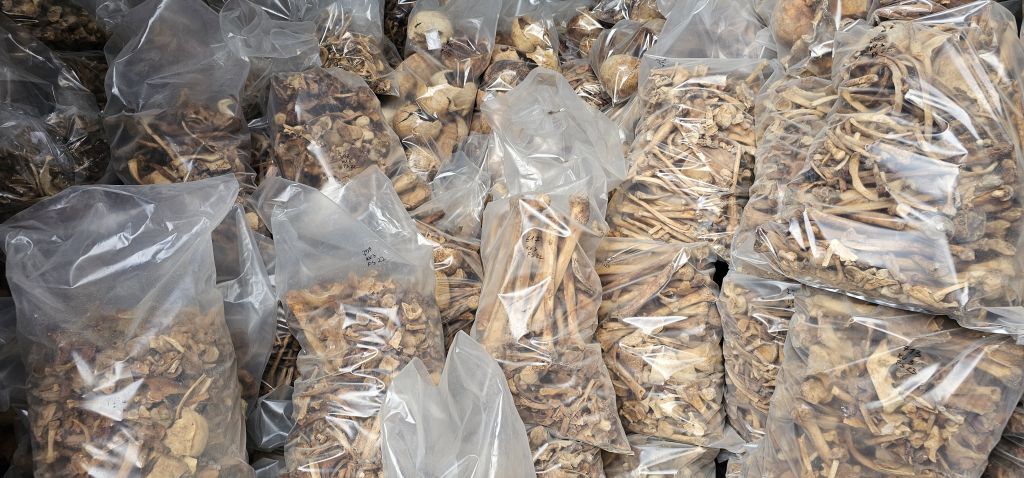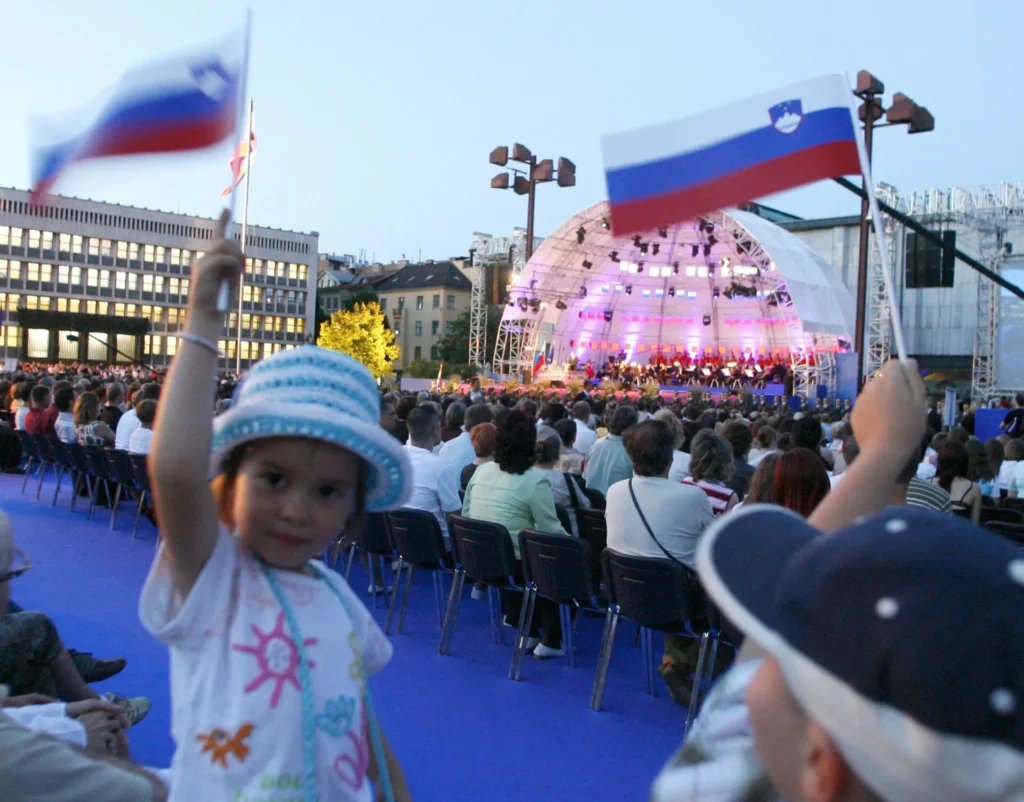Today, on the 25th of June, we are celebrating Statehood Day, which is the most important day of independent Slovenia. It was on this day in 1991 when the Slovenian nation finally broke its ties with the failed Yugoslavian communist regime and embarked on the path of democracy. But today, 34 years later, the spirit of that unity seems to be fading. Instead of experiencing Statehood Day as a moment of national pride, today’s authorities marginalise, relativise and even relegate it to oblivion. We talked to historian Tamara Griesser Pečar about why Statehood Day is a key symbol of freedom and what its denial means, and she clearly pointed to the dangerous trends of historical revision and the erasure of the independence consciousness.
She began by reminding us that in Slovenian collective memory, two concepts often coexist – liberation and independence. The former refers to the end of the Second World War, and the latter refers to the end of Yugoslavia. However, as Tamara Griesser Pečar pointed out, these two events should not be equated. “In 1945, Slovenia exchanged one totalitarian regime for another, and there was no real liberation in 1945, but in 1991, Slovenia gained its independence and liberation and adopted a democratic system,” said the historian.
While the “liberation” of 1945 was, in fact, a transition from Nazi occupation to communist dictatorship, 1991 was the first moment when the Slovenian nation decided its future on its own and freely. Griesser Pečar pointed out that the communist regime established after the war under the guise of “liberation” actually suppressed political freedoms, imposed censorship, and even imprisoned and killed political opponents. It was liberation without freedom.
Who were the fighters for our independence – and why are we forgetting them today?
Independence was not a spontaneous historical development, but the result of a conscious decision by courageous individuals. The history of independence is written with names: Janez Janša, Lojze Peterle, Igor Bavčar, Jelko Kacin, France Bučar, Dimitrij Rupel, “but for the first President of the country, Milan Kučan, an independent state was not the preferred option.” Jože Dežman added that we cannot forget about “the Democratic Opposition of Slovenia – DEMOS government, as well as the new territorial defence”. But today – according to Griesser Pečar – these are the people who are often marginalised.

She also pointed out that today’s authorities, the government of Robert Golob, often overlook or even deny the key players of that time: “It is not fair to those who fought for our independence. After everything that has happened in the last two or three years under the Golob government, Slovenia is going backwards.” Instead of being celebrated as the architects of freedom, they are being silenced and discredited today, according to the historian.
Could the process of gaining our independence be carried out again today?
“I doubt that we could repeat independence today with such determination and unity. We have two problems – one is that we don’t have a free media landscape. Around 80 percent of them are not independent, and the national media outlet, Radio-Television Slovenia (RTVS), is not doing its job as it should, meaning, it does not report on everything neutrally and by covering all sides of a story,” she added.
The current government’s attitude to independence
The state is not just a law – it is also an attitude we have to the nation, to history, to symbols. That is why every government, regardless of its political colour, is obliged to respect the foundation on which Slovenian statehood stands. However, the government of Robert Golob has shown that it has an almost openly negative attitude towards independence. The most notable example is the abolition of the Museum of Slovenian Independence – an institution that should have been a natural symbol of respect for the events of 1991. Griesser Pečar said: “The attitude of this government towards independence is macho. They do not recognise the communist regime as totalitarian, they abolish the memory of its victims, they do not respect democratic values.” Meanwhile, historian Jože Dežman put it even more starkly: “What this government is doing with independence is just vile.”

This attitude is also reflected in the National Assembly, where – as Griesser Pečar puts it – the opposition is not allowed to speak, and the symbols of independence are quietly being removed from the public space. The historian is convinced that this attitude is essentially a message from the authorities: an independent Slovenia is not our preferred option.
Independence in the school system: the overlooked topic of the future
If young people are to understand what it means to have their own country, we need to tell them – clearly, directly and without ideological filters. However, the school system is not doing this, noted the historian, who believes the problem lies in the curriculum. Independence is often mentioned in passing, while much more attention is paid to the National Liberation Movement (NOB) and what happened during the Second World War. “Our semi-past history is full of myths. Post-war communism was not a struggle for freedom, but for power. This is what is constantly emphasised, and independence is neglected.”
This is why schoolchildren today know more about foreign holidays than their own Statehood Day. Textbooks are sterile, curricula are shallow, and teachers themselves are often ideologically loaded, the historian added. “Curricula need to be changed. At the moment, it is up to the teacher whether or not to commemorate it at all,” Griesser Pečar pointed out.
Statehood Day is more than just a commemorative holiday – it is the historical foundation of Slovenian statehood, the result of the courage and unity of a nation that chose freedom, democracy and independence in 1991. But today, 34 years later, this foundation should no longer be taken for granted. And as historian Griesser Pečar has pointed out, there are worrying trends: the history of independence is being marginalised, the key actors of the time are being silenced, and the education system is failing to provide young people with a fundamental understanding of their own statehood.
A. G.


